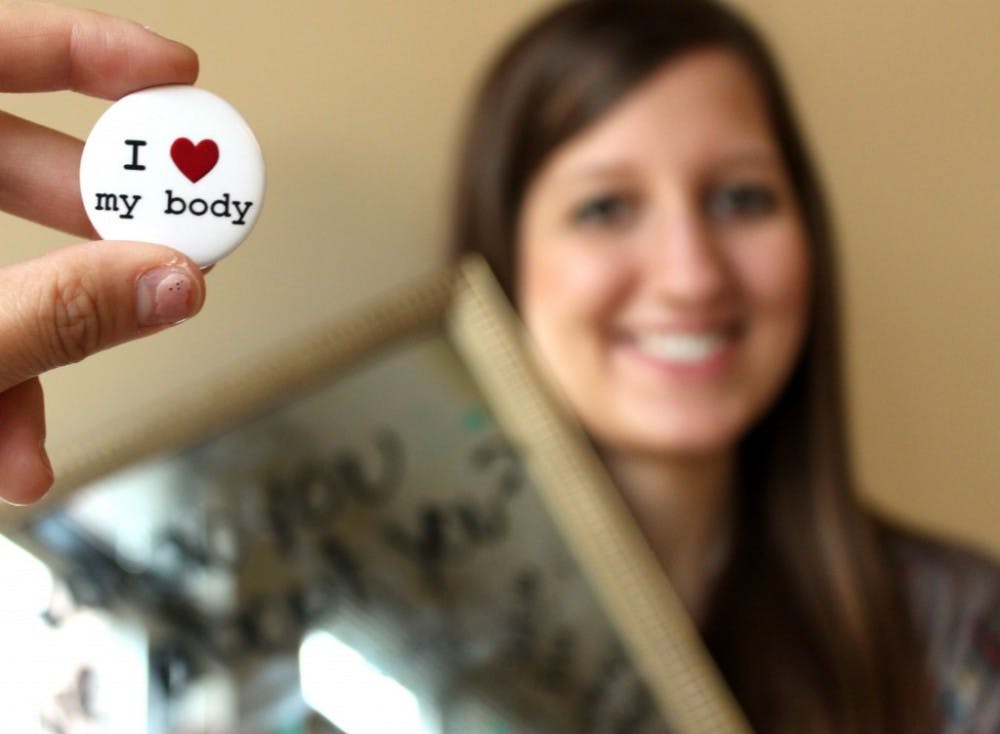Her size always defined her.
As a child, senior Kelly Little, who describes herself as tiny, recognized the limitations body image imposed on individuals, eventually inspiring her Lumen project and collaboration with SPARKS’ annual Love Your Body Week.
As part of the week’s activities, Ophira Edut, an activist, author and national body image speaker, enlightened an audience of Elon University students, faculty and staff with information regarding body image and how it expands beyond eating disorders.
Edut, author of “Body Outlaws” and co-founder of loveyourbody.com, has made it her personal mission to create a world where women and girls cherish themselves.
Little contacted Edut, among other potential speakers, as a way to combine her research with Love Your Body week. Edut and Little began communicating via Facebook, and Edut became very interested after Little told her about her Lumen research.
The Lumen Prize is awarded to students who seek to complete a research project their junior and senior years at Elon. After receiving the $15,000 prize, she conducted extensive research and observation to analyze how body image influences peer interaction.
“Body image is something I have always been passionate about,” Little said. “Growing up, I was always tiny, and that defined me. I could not put on weight, which was different from many people I loved, some of whom had eating problems.”
The annual Love Your Body week consists of various activities that promote positive body image. Usually there is a much smaller turnout, according to Little. But this year, more than 100 people came to the speech and 3,000 “I love my body” pins were made.
In her presentation, Edut shared five levels in which individuals can strive to become a “body outlaw,” or a person who defies norms and customs that are bestowed upon them by society. The levels begin individually and extend globally, she said.
“This is the world we live in where women and girls are taught that our real values lay in our looks and attractiveness,” Edut said.
Edut reminded the audience that change begins with small steps — for instance, not participating in conversations about calories and practicing self-acceptance.
She said she encourages individuals to be the bold and outspoken ones in their friend groups. Creating campus events, such as Little did to educate other peers, is an example of an evoking action.
Edut also encourages people to create their own blog and use social media websites like Facebook and Twitter to promote new points of view that contradict the ideals of “perfection.”
“Forty percent of women wear a size 14 or above, yet the average model weighs 23 percent less than that,” Edut said. “We have to decode these messages that have become normal to us.”
Edut motivates people to become involved on a national level and stop movements such as the anti-obesity one in Georgia. As part of this campaign, billboards were put up that read, “It’s hard to be a little girl when you’re not hot” and showed photos of young girls who were overweight.
But exposing obesity bigotry is not the way to promote a healthy lifestyle, according to Edut. Instead, health can be promoted by progressive acts to fund more physical education programs in elementary, middle and high schools.
Edut ended with an inspirational quote from anthropologist Margaret Mead:
“Never doubt that a small group of thoughtful, committed citizens can change the world. Indeed, it is the only thing that ever has.”


